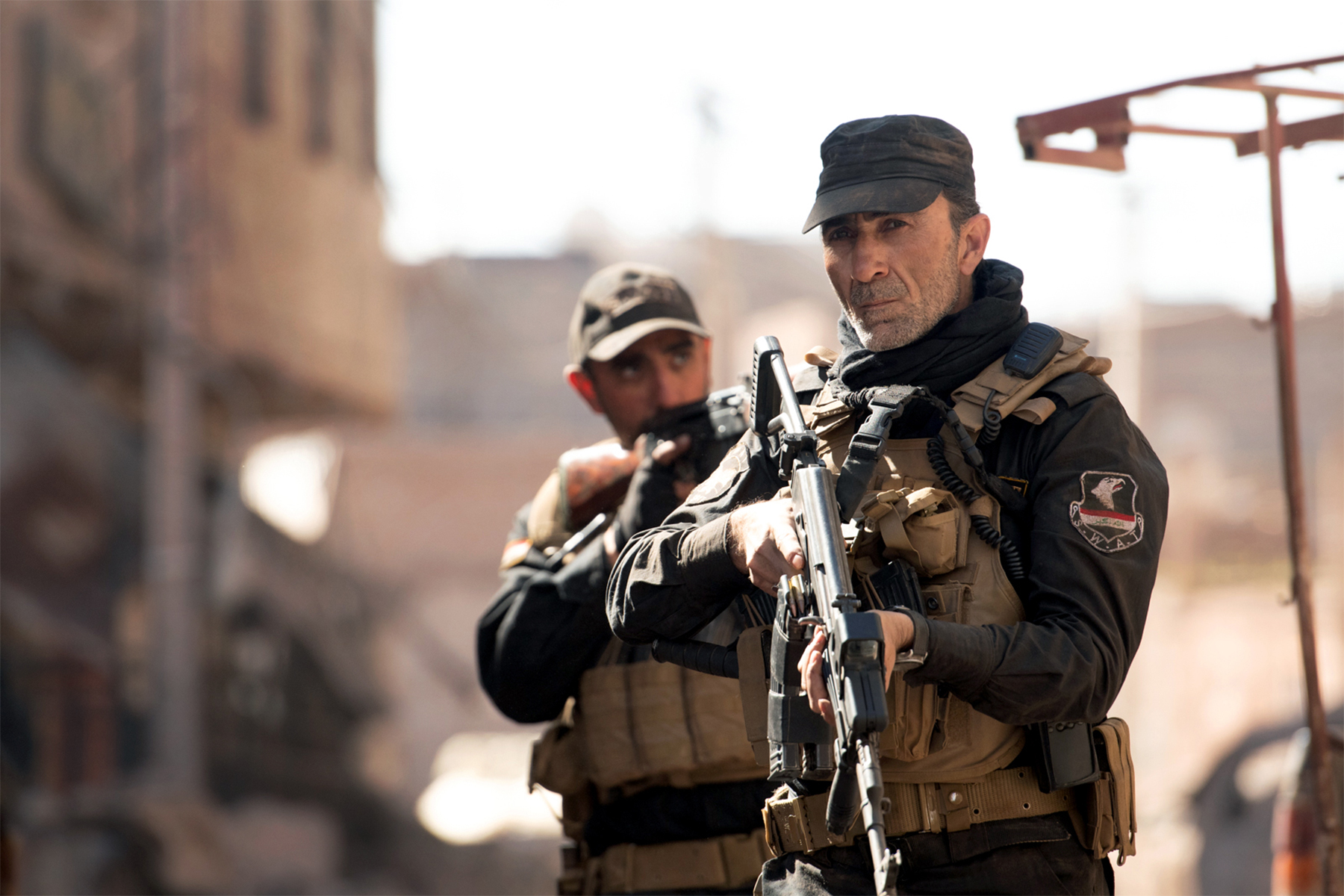Netflix’s ‘Mosul’ is an action movie that places its viewers in the middle of an intense battle between a renegade police unit and the ISIS fighters in the eponymous Iraqi city. Starring Waleed Elgadi, Hayat Kamille, Thaer Al-Shayei, Suhail Dabbach, and Adam Bessa, it makes for a harrowing story that looks at the many consequences of war. Naturally, we were curious about the veracity of the events, and here’s what we have uncovered.
The True Inspiration Behind Mosul
Yes, ‘Mosul’ is based on a true story. Interestingly, the script sought inspiration from Luke Mogelson’s January 2017 article in The New Yorker titled ‘The Desperate Battle to Destroy ISIS. ‘ The report highlighted the struggles and hardships faced by Iraqi civilians on the borders of ISIS territories. The Russo brothers—Joe and Anthony—were involved in the project through their production company, AGBO.

Joe recalled that the director, Matthew Michael Carnahan, was so touched by the article that he decided that this was the story he wanted to tell the world. Anthony added that although everyone has become accustomed to violence in movies, the experience of having your homeland invaded is an extreme situation that not everyone can understand. They released a statement which read, “This true story captures the resilience of the human spirit, when faced with seemingly unwinnable circumstances, and at its core, it celebrates the group of soldiers who stood together to protect their home.”
The director put his best foot forward to ensure that everything was as authentic as it could be. Special emphasis was put on the exact dialect of Arabic spoken in the region. He stated that some scenes use an Iraqi/Baghdad city dialect of Arabic, which would sound quite different from a Moroccan dialect (where they had previously shot). He further stated that he wanted to do justice to the soldiers’ annals and that authenticity was a key component of his vision.
Adam Bessa, who plays a young recruit, participated in the three-week boot camp alongside the soldiers they were meant to enact on-screen. In one particular interaction that took place halfway through the program, he asked a soldier about the emotion he felt whenever he killed someone. However, the latter refused to answer him for the duration of the shoot. (Later, Bessa did get his answer but did not publicly reveal it).
Another producer, Mohamed Al-Daradji, stated that from the beginning, Matthew was all about trying to capture the humanity of the Iraqi and Arabic people, especially since in more conventional Hollywood stories, they are usually the bad guys. Real experiences fuelled the development of the characters in the movie. Al-Daradji even stated that the first time he read the script, he did not want it to end and got really emotionally invested in it. A thing to note at the beginning of the movie is that there is some prologue text, and the action follows immediately after.
The story is not really set up, which the director said was an intentional move on his part. With this particular storytelling format, he wants the viewers to embrace the confusion before letting the SWAT team become a part of the answer. He added that the whole idea behind ‘Mosul’ was to capture the humanity of the soldiers, not just to provide a dose of action sequences (something that can be done by several other productions out there already).
Read More: Best War Movies on Netflix


You must be logged in to post a comment.